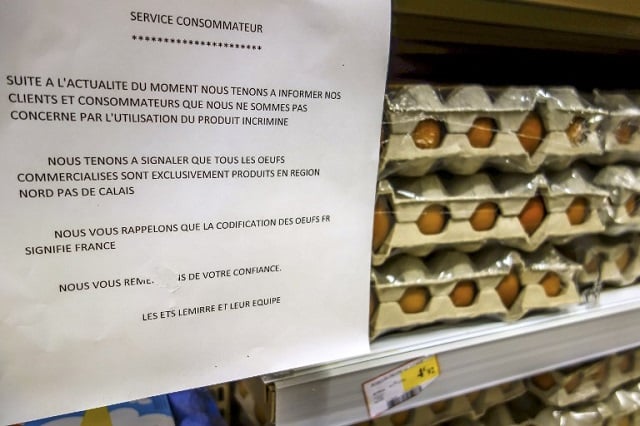The products have all been withdrawn from sale, after previously being sold by several major supermarket chains including Carrefour, Monoprix, Casino, and Franprix.
So far, the list comprises 17 kinds of packaged waffles by different brands.
They were all found to contain traces of the insecticide fipronil, a chemical used to get rid of fleas, lice and ticks from farm livestock, banned by the European Union from use in the food industry.
The ministry said the list was not comprehensive and further products may be added if confirmed to contain the chemical.
READ ALSO:
 AFP
AFP
All the waffles contained levels of fipronil above the recommended limit, but at present, the products “do not present a risk to the consumer”, the ministry said in a statement.
It added that it would publish a second list, of products withdrawn from sale and recalled from customers, if any products with sufficiently high levels of fipronil were discovered.
The ministry compiled the list using information provided by suppliers and from official controls carried out by French and foreign authorities.
Investigations have been opened in Belgium and the Netherlands, where the affected eggs were hatched, in order to determine criminal responsibility. In total, more than 200 farms across the two countries were contaminated after the premises were disinfected using fipronil-containing products.
Since the scandal was discovered in late July, millions of eggs have been removed from supermarket shelves across Europe, with at least 17 countries affected.
The French agriculture ministry also said that on July 28th a poultry farm at Pas-de-Calais in northern France was put under surveillance after the farmer told authorities a Belgian supplier had provided him with the tainted product in question.
The ministry was carrying out testing at the farm, but said none of its eggs had been sent to market.



 Please whitelist us to continue reading.
Please whitelist us to continue reading.